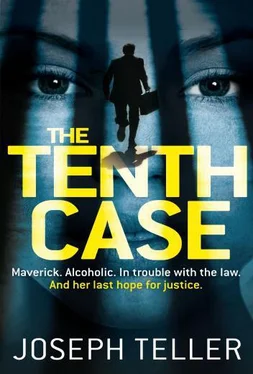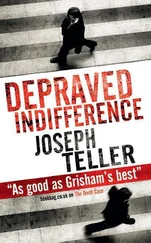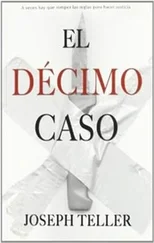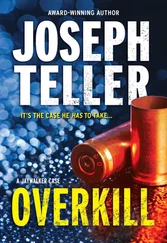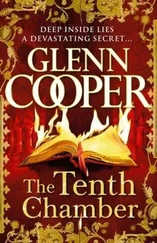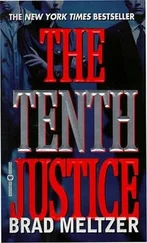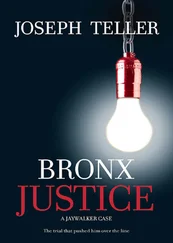Joseph Teller - The Tenth Case
Здесь есть возможность читать онлайн «Joseph Teller - The Tenth Case» — ознакомительный отрывок электронной книги совершенно бесплатно, а после прочтения отрывка купить полную версию. В некоторых случаях можно слушать аудио, скачать через торрент в формате fb2 и присутствует краткое содержание. Жанр: Криминальный детектив, на английском языке. Описание произведения, (предисловие) а так же отзывы посетителей доступны на портале библиотеки ЛибКат.
- Название:The Tenth Case
- Автор:
- Жанр:
- Год:неизвестен
- ISBN:нет данных
- Рейтинг книги:3 / 5. Голосов: 1
-
Избранное:Добавить в избранное
- Отзывы:
-
Ваша оценка:
- 60
- 1
- 2
- 3
- 4
- 5
The Tenth Case: краткое содержание, описание и аннотация
Предлагаем к чтению аннотацию, описание, краткое содержание или предисловие (зависит от того, что написал сам автор книги «The Tenth Case»). Если вы не нашли необходимую информацию о книге — напишите в комментариях, мы постараемся отыскать её.
The Tenth Case — читать онлайн ознакомительный отрывок
Ниже представлен текст книги, разбитый по страницам. Система сохранения места последней прочитанной страницы, позволяет с удобством читать онлайн бесплатно книгу «The Tenth Case», без необходимости каждый раз заново искать на чём Вы остановились. Поставьте закладку, и сможете в любой момент перейти на страницу, на которой закончили чтение.
Интервал:
Закладка:
A very long day indeed.
Tom Burke rose, and for the next half hour he asked questions of the potential jurors, some general, some ad dressed to a particular individual. Burke was a no-nonsense lawyer with a nice way about himself. He asked the jurors what organizations they belonged to or donated money to, what magazines they subscribed to or read on a regular basis, and what television programs they liked best. He asked for their assurances that they wouldn't be influenced by the defendant's prettiness, or by the fact that she was a woman. He asked them to promise that if he proved her guilt by the legal standard, they would return a verdict of guilty.
They promised.
Jaywalker's turn didn't come until after the lunch break. Lunch for everyone else, that was. Jaywalker, who never ate breakfast and skipped lunch when he was on trial, found a spot on a windowsill by the elevator bank, and spent the hour reviewing his notes and composing his ques tions. But the truth was, he'd pretty much known what he was going to ask for weeks now, for months. His approach to jury selection was radically different from just about every other lawyer he knew. As much as he was interested in what magazines a prospective juror read, he never asked. He had two reasons.
First, while it was comforting to know that a juror pre ferred The New Yorker to Guns and Ammo, the price of learning that piece of information was that the D.A. learned it, too, and would now use it to exercise one of his peremptory challenges against the liberal New Yorker reader. So the knowledge gained was illusory and, in the long run, worthless.
Second, there was simply no time for such nonsense. Samara Tannenbaum was on trial for murder. The sixteen jurors whom Jaywalker was about to question had walked into the courtroom figuring she was guilty, either for sure or probably. A couple of them had even been honest enough to say so, or smart enough to know that saying so would get them a ticket home. Jaywalker had exactly half an hour to change that perception and turn the trial into a ball game. That worked out to less than two minutes a juror. He'd be damned if he was going to spend one second of that time asking them about magazines.
Nor would he ask them for promises of fairness. If a juror was the kind of person who was inclined to be fair, no promise was necessary. And if the juror wasn't going to be fair, it logically followed that no promise he or she made could be trusted. And again, there was simply no time to waste on such nonsense.
"My name is Jaywalker," he told them, when finally it was his turn to get up and talk to them, "and I represent the defendant, Samara Tannenbaum." Standing behind her now, placing a hand on each of her shoulders. Just in case they'd missed it this morning.
Jaywalker's philosophy of jury selection, as radical as it was, was quite simple. It began with the proposition that, as the last of the three to ask questions-the judge having been the first and the prosecutor the second-he already knew enough about each of them to make an informed guess as to whether he wanted them or not. That, along with the fact that anything additional he might now learn would help his adversary as much as it would help him, meant that he almost never asked questions aimed at seeking more information. What he set out to do instead was condition them. Actually, a more precise way of put ting it would have been to say he wanted to brainwash them. But that term, however apt, carried a decidedly negative, Manchurian Candidate connotation to it, even were one inclined to think of the process in its most thera peutic definition. brainwash (' brane 'wosh), v., to cleanse the mind so as to rid it of prejudices and other preconceived notions that have no goddamned business in a criminal trial in the first place.
The methods Jaywalker employed were twofold. First, in the guise of asking information-seeking questions, he would proceed to reveal to the jurors the most damning evidence against his client. Then, purely to avoid drawing an objection, he would ask them if, having heard that, they could still be fair and impartial. Second, again posed in question form, he would repeatedly hammer into them the magic words upon which they were ultimately going to base their acquittal of the defendant: that the prosecution, and only the prosecution, bore the burden of proof, a burden that not only required them to prove that the defen dant was guilty, but required them to prove it beyond all reasonable doubt. Over and over he would say those things, until the jurors could sense when the words were coming, knew them by heart and mouthed them along with him. They would take the words home with them at night, bring them back in the morning, and internalize them to the point that they were no longer just words but had become a refrain of sorts, a refrain that punctuated every line and every verse of the trial. A mantra.
And then Jaywalker would combine the two methods into one.
MR. JAYWALKER: Ms. Heywood, the evidence is going to show, not just beyond a reasonable doubt, but beyond all doubt, that when first confronted by the detectives, Samara Tannenbaum lied to them. Not only did she lie once, she lied twice. And she didn't just lie about silly stuff, but about stuff that turns out to look important. Hearing from me, her lawyer, that she lied like that, can you still give her a fair trial?
Now, it didn't matter a bit whether Ms. Heywood an swered that she could or thought she could, or that she'd try her best, or that it depended on the rest of the evidence. The important thing was that by bringing out the fact that Samara had lied before Tom Burke could establish the fact through the testimony, Jaywalker was defusing the issue, taking all the drama out of it. And by getting the jurors-for they were all listening, not just Ms. Heywood-to commit to being fair in spite of Samara's having lied, he was in effect getting them to discount it. If Ms. Heywood had answered no, she couldn't be fair, then Jaywalker wouldn't even have to waste a peremp tory challenge on her; he would get her excused for cause. MR. JAYWALKER: And when I say, "give her a fair trial," Mr. Monroe, you understand what I mean by those words. I mean that you must hold the prose cution to their burden of proof, and require them, if they can, to not only prove that Samara is guilty, but to prove it beyond all reasonable doubt.
And by placing great vocal stress on the word beyond, no one-not Tom Burke, not even Judge Sobel-caught the fact that Jaywalker had quietly changed the word im mediately following it from a to all. Not until the next day, at least, or the day after that. Not until it was too late, not until it had become part of the refrain, part of the jury's mantra. Not until Jaywalker's little sleight of hand had succeeded in raising the prosecution's burden of proof from "beyond a reasonable doubt" to "beyond all reason able doubt."
Sound like a little thing?
Perhaps.
But experience had taught Jaywalker that it was pre cisely the kind of little thing that translated into the differ ence between winning and losing.
So he didn't just tell the prospective jurors about Sa mara's lies to the detectives. He also told them about her presence in Barry Tannenbaum's apartment shortly before the time of his death, about the items found hidden behind her toilet tank, about the overwhelming certainty that Barry's blood was present on them, even about the life insurance policy application with Samara's signature on it. And after each damning revelation, he asked the jurors if they still could give his client a fair trial and hold the prosecution to its burden of proving guilt beyond all reasonable doubt.
A few said no, they no longer could. Which was fine; they would be excused for cause.
But the vast majority said yes.
Jaywalker took a glance at his watch. He'd been on his feet for close to twenty-five minutes now. He had barely five minutes left. And he had a cardinal rule that he never broke. It was a rule that, like so much else he did, set him apart from just about all his colleagues. As early as the jury selection process, he made it a hard and fast policy to tell the jurors whether or not his client would take the stand.
Читать дальшеИнтервал:
Закладка:
Похожие книги на «The Tenth Case»
Представляем Вашему вниманию похожие книги на «The Tenth Case» списком для выбора. Мы отобрали схожую по названию и смыслу литературу в надежде предоставить читателям больше вариантов отыскать новые, интересные, ещё непрочитанные произведения.
Обсуждение, отзывы о книге «The Tenth Case» и просто собственные мнения читателей. Оставьте ваши комментарии, напишите, что Вы думаете о произведении, его смысле или главных героях. Укажите что конкретно понравилось, а что нет, и почему Вы так считаете.
